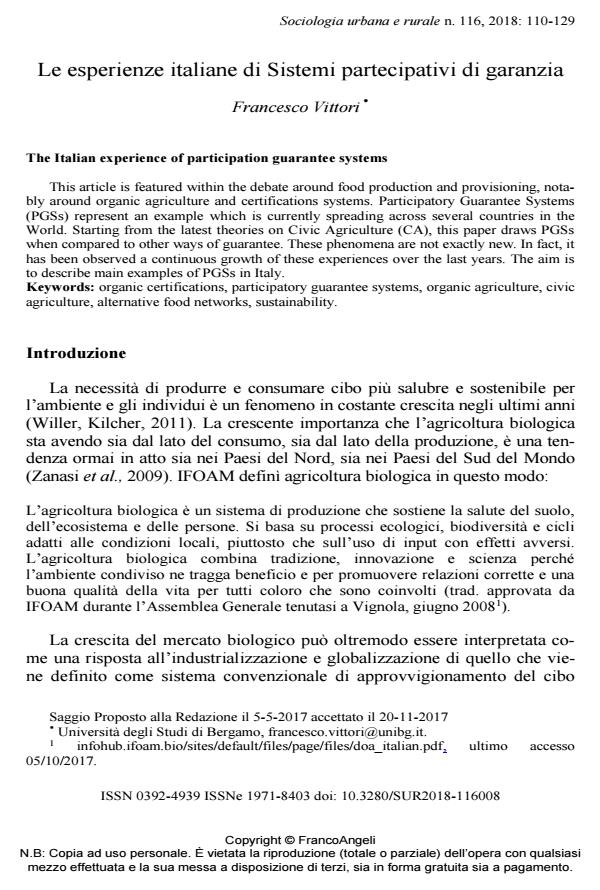The Italian experience of participation guarantee systems
Journal title SOCIOLOGIA URBANA E RURALE
Author/s Francesco Vittori
Publishing Year 2018 Issue 2018/116
Language Italian Pages 20 P. 110-129 File size 415 KB
DOI 10.3280/SUR2018-116008
DOI is like a bar code for intellectual property: to have more infomation
click here
Below, you can see the article first page
If you want to buy this article in PDF format, you can do it, following the instructions to buy download credits

FrancoAngeli is member of Publishers International Linking Association, Inc (PILA), a not-for-profit association which run the CrossRef service enabling links to and from online scholarly content.
This article is featured within the debate around food production and provisioning, notably around organic agriculture and certifications systems. Participatory Guarantee Systems (PGSs) represent an example which is currently spreading across several countries in the World. Starting from the latest theories on Civic Agriculture (CA), this paper draws PGSs when compared to other ways of guarantee. These phenomena are not exactly new. In fact, it has been observed a continuous growth of these experiences over the last years. The aim is to describe main examples of PGSs in Italy.
Keywords: Organic certifications, participatory guarantee systems, organic agriculture, civic agriculture, alternative food networks, sustainability.
- Unmaking capitalism through community empowerment: Findings from Italian agricultural experiences Alessandra Piccoli, Francesco Vittori, Francesca Uleri, in Journal of Rural Studies 103064/2023 pp.103064
DOI: 10.1016/j.jrurstud.2023.103064 - Re-territorialising skills? Insights from ethnography on solidarity-economy food activism Cristina Grasseni, in Sustainability Science /2025 pp.1639
DOI: 10.1007/s11625-024-01527-0
Francesco Vittori, Le esperienze italiane di Sistemi partecipativi di garanzia in "SOCIOLOGIA URBANA E RURALE" 116/2018, pp 110-129, DOI: 10.3280/SUR2018-116008